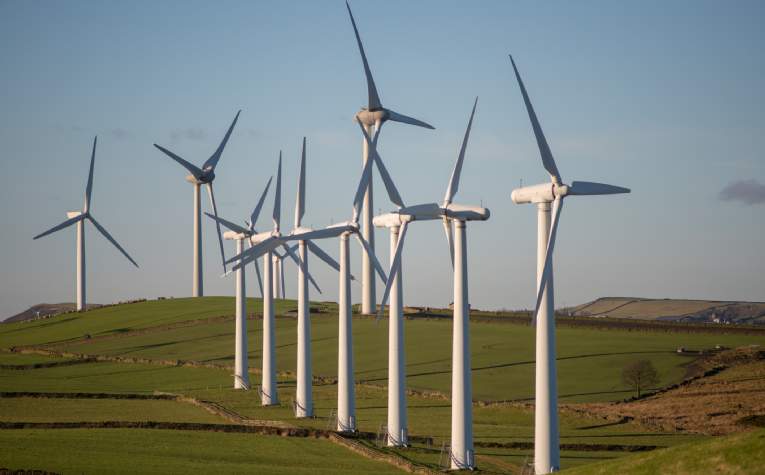With the UK Government continuing on its journey to net zero and encouraging homeowners to ensure all heating appliances in homes are low carbon from 2035, here are some top tips you can be doing to help reduce your energy use at home.
1. Identify your big energy uses and target reductions in these areas
There’s a huge array of properties in the UK varying in style, materials, and performance specification, so understanding your home’s energy uses and targeting improvements accordingly could save money and reduce material use, whether this is through an updated Energy Performance Certificate (EPC), a building survey or comparing your meter readings.
2. Reduce energy use to future proof your home
From replacing all the lightbulbs with low energy LED bulbs or old appliances with new efficient versions, insulating hot water and heating pipes to reduce heat loss to investing in smart controls for your heating system, simple changes will help to reduce energy use and save money.
3. Reduce gaps and draughts
Good ventilation is key for a home’s air quality, but unwanted air leakage means heat escapes and results in higher costs. Stopping draughts through floorboards, under skirting boards, through loft hatches, around doors, windows and letter boxes will help create a more comfortable home that costs less to run.
4. Upgrade your windows
Single glazed windows lose a huge amount of heat and often leak. Replacing them with efficient double glazed or, ideally, triple glazed windows will save energy. Consider replacing old double glazing for new and efficient double or triple glazed windows too. Heritage friendly windows are available if conservation is needed.
5. Insulate
Improving insulation will reduce heat loss. Insulating externally is the gold standard, but requires significant work and changes a home’s appearance. Cavity wall insulation or internal insulation provide alternatives. Insulating the roof well can reduce heat loss by up to 20 per cent.
6. Ventilate correctly
Making sure air bricks, vents and trickle vents are free of debris will help to avoid unintended consequences, such as poor indoor air quality, condensation, damp, mould and overheating, which can lead to property damage. Make sure retrofit works don’t impede air flow.
If you’re considering more significant retrofit works, mechanical or extract ventilation systems with heat recovery can improve the ventilation of your home with the added benefit of reducing heat loss. If you have systems installed already, ensure filters are cleaned regularly.
7. Move away from fossil fuels as soon as your boiler needs replacing
Gas and oil boilers directly contribute to carbon emissions. Be wary of ‘hydrogen ready’ boilers: it’s unlikely that zero-carbon hydrogen will be available en masse for the foreseeable future. Switching to electric sources of heat and hot water will result in cleaner energy as more renewable energy is introduced onto the UK National Grid. Air or ground source heat pumps are some of the most efficient electric options that will help keep running costs down.
8. Install renewable energy systems to offset the energy you do use
Most roofs can be used for photovoltaic (PV) panels. PV panels can help to keep the running costs of electric heating systems low.
9. Good workmanship is key
Gaps around insulation creates a bypass for heat to escape. Poorly installed heat pumps can be expensive to run. Poor ventilation and air quality can cause condensation, damp, mould an overheating issues, so make sure you use experienced tradespeople.
10. Consider embodied carbon
While it won’t affect your EPC just yet, the energy that goes in to sourcing, making, transporting and installing contributes to carbon emissions. Sourcing products locally that have a longer life or lower weight will help minimise their wider impact.
Further information
IPCC report challenges real estate industry to act now to mitigate climate crisis
Climate change and the residential sector: what role does housing play?
Environmentally thinking: boost your EPC to boost the value of your home


-be-a-significant-emerging-asset-class-in-europe(1).jpg)
.jpg)
.jpg)
.jpg)




.jpg)